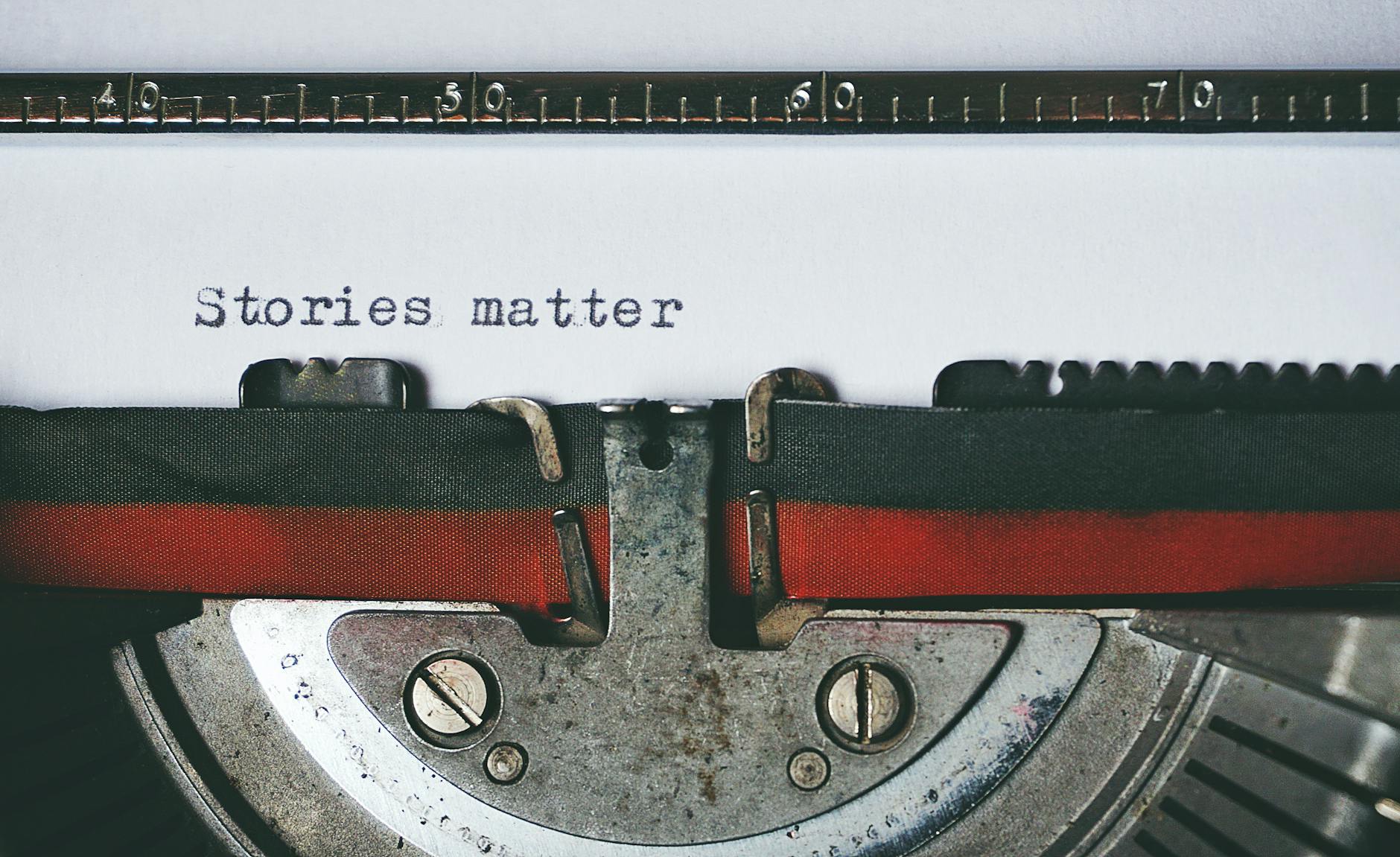In our hyperconnected world, a question I often encounter is, “How do you get your news?” The truth is, my approach to news consumption diverges significantly from the average person’s habits. As an early retiree with children, I’ve had to devise a strategy for staying informed without drowning in a sea of information—or worse, being misled by it. Our days are filled with managing household chores, homeschooling adventures, and squeezing in leisure activities like impromptu beach trips. In this context, I simply can’t afford to waste time on misleading or false information.

The Challenge of Modern News Consumption
Remember the days when we’d sit down with a newspaper over morning coffee? I don’t, as I’m not that old! LOL. Now, a simple swipe on our phones can unleash an overwhelming torrent of information. It’s no wonder many of us feel our attention spans dwindling to that of a toddler faced with a bowl of vegetables.
The digital age has transformed how we access and consume information. Social media platforms, 24/7 news channels, and countless online publications vie for our attention, making it increasingly difficult to separate signal from noise. This information overload not only tests our ability to focus but also creates a fertile breeding ground for misinformation and disinformation.
What’s the difference? Misinformation is false information spread without malicious intent—think of a friend sharing a financial tip they genuinely believe will help others. Disinformation, however, is deliberately created and spread with the intent to deceive—like a coordinated campaign to manipulate public sentiment about world events. Both can harm your decision-making, but recognizing the difference helps you better understand the motives behind the content you consume.
My 90% Filter: A Criteria for Sifting Through the Noise
To navigate this complex landscape, I’ve developed what I call my “90% Filter”—a set of criteria that helps me filter out approximately 90% of the misinformation circulating in the media ecosystem. It’s not foolproof, but it’s served me well in maintaining my sanity and staying reasonably informed while enjoying our early retirement lifestyle.
Key Elements of My Filtering Process:
- Source Credibility: I scrutinize who’s presenting the information. Is this journalist known for integrity or sensationalism? This involves looking into the background of journalists, authors, or presenters. Practicing fake journalism? You’re out!
- Follow the Money: I ask myself, “Who owns this media outlet?” Understanding the financial backing of a news source can reveal potential biases or conflicts of interest.
- Motives and Gains: What’s the agenda behind this story? What does the source stand to gain from presenting this particular information? Understanding the motivations behind a story can provide valuable context. Investigate whether the news outlet or specific content is sponsored or funded by entities with vested interests in the topic being reported.
- Character Assessment: I pay close attention to the content of character displayed by those delivering the news. Have they shown integrity in their reporting? Does the presenter admit to mistakes? I respect news anchors or influencers who can say, “We got it wrong, and here’s the correction.”
- Track Record of Truthfulness: Fool me once; shame on you. Fool me twice… well, you’re off my trusted sources list. Has this source hidden facts or deliberately lied to its audience in the past? A history of deception is a major red flag.
- Diversity of Sources: It’s important to recognize when multiple outlets are reporting the same information from a single source. If you’re watching the same news on five different channels, and they’re all sourcing from the AP (The Associated Press), that’s essentially one source of information, not five.
- Predictive Accuracy: I keep a mental scorecard of how often a source’s predictions come true. It’s surprising how quickly some “experts” forget their failed forecasts. If a medium consistently presents information about future events that turns out to be false, especially if there’s evidence they knew it was false at the time, that’s a clear sign to be wary of their reporting.
- Fact-Checking the Fact-Checkers: Who’s funding these fact-checking organizations, and what are their sources? When fact-checkers cite other fact-checkers who cite other fact-checkers, we’re stuck in a circular loop of verification. Track record matters—many prominent fact-checking organizations have had to quietly retract or revise their “facts” months or years later, particularly during major events like the Covid pandemic. Always ask: Who benefits from this particular version of “truth”?
- Beware the Click-Bait: High engagement doesn’t always correlate with accuracy or importance. That viral story about a three-headed cat? Probably not breaking news. Be cautious of media outlets that seem designed primarily to generate clicks or shares.
- Timing is Everything: News dropped on a Friday evening or during a major holiday? That’s often an attempt to bury a story. I make a note to follow up on these.
- Context is King: I always ask, “What’s the bigger picture here?” A 10-second clip rarely tells the whole story.
- Pre-screening Shared Content: When a friend or family member sends me a link, I’ve developed a habit of asking them why they think it’s important for me to check it out before I click. This simple question serves multiple purposes:
- It helps me understand the sender’s perspective and what they found valuable.
- It allows me to gauge whether the content aligns with my interests or needs.
- It encourages more mindful sharing habits among my circle.
Of course, some family members might find this level of sophistication… let’s say, challenging. In those cases, I’ve mastered the art of strategic link ignoring. Surprisingly effective! They eventually get the hint, and the flood of “urgent must-read” articles about miracle weight loss teas and the Ave Maria links slow to a trickle. Sometimes silence speaks louder than words.

A Note About The Associated Press
The Associated Press, a non-profit news agency founded in 1846, is a cooperative of news organizations that share content. This is why you often see identical stories across multiple outlets. But here’s where it gets interesting—my personal experiences have shown me just how pervasive AP’s influence is.
During my college days, I had a stint doing news segments. I was surprised to see how news press releases flowed in, pre-packaged and ready to broadcast. We simply chose which stories to report from this curated selection. Later, when I ran a magazine in New York, we received these same press releases after signing up for the service. While it didn’t serve our non-news focused content, it opened my eyes to how widely distributed these single-source stories are.
This firsthand experience is why I always emphasize the importance of seeking out additional, independent sources for verification. It’s not just about cross-referencing mainstream news sources; they’re often drawing from the same well. True diversity in news consumption requires actively seeking out different perspectives and original reporting.
Red Flags That Make Me Skeptical
- Statements beginning with “Studies show…” or “Experts say…” without specific references. Who are these mysterious experts, and can I see their credentials?
- Out-of-context quotes or clips. I’ve learned to seek out full interviews or speeches before forming opinions.
- Character assassination attempts. When news seems designed to destroy a person’s reputation rather than addressing their policies or ideas, my skepticism kicks into high gear. It’s often a tactic to distract from substantive issues or discredit someone without engaging with their actual message. However, in some cases, a character’s lack of good policies or ideas makes them vulnerable to this type of attack.
The Impact of Mindful News Consumption
Adopting this approach has transformed my relationship with news:
- My stress levels have plummeted. No more anxiety-inducing doom-scrolling for me!
- My critical thinking skills have sharpened. I find myself applying this skepticism to other areas of life, from analyzing our retirement portfolio to evaluating educational resources for our kids.
- I’ve developed a more nuanced worldview, realizing that most issues are far more complex than headlines suggest.
- I’ve reclaimed time for what truly matters—family, personal growth, and yes, the occasional Netflix binge without guilt.

The 90% Filter and Your Financial Well-being
As early retirees managing our own finances, we’ve found that our approach to news consumption directly impacts our financial decision-making and overall financial well-being. While the best approach for the health of your portfolio might be to avoid financial news altogether, we recognize that’s not always practical or desirable for everyone. If you do choose to engage with financial news, here’s how applying our 90% Filter can help:
- Avoiding Reactive Investing: The 24/7 financial news cycle is designed to keep you glued to your screen, often promoting a sense of urgency that can lead to impulsive investment decisions. By applying our 90% Filter to financial news, we’ve been able to avoid knee-jerk reactions to market volatility. Take the GameStop frenzy of 2021: social media was ablaze with stories of overnight millionaires, and mainstream financial news breathlessly covered every price swing. Many investors, driven by FOMO and social media hype, jumped in at peak prices only to suffer significant losses when the bubble burst. Meanwhile, our critical approach to news helped us recognize the speculative nature of the frenzy and stay committed to our long-term investment strategy. The GameStop saga perfectly illustrated how financial media can transform market speculation into a gold rush mentality, while those who maintained their skepticism and stuck to their investment principles avoided the rollercoaster altogether.
- Recognizing Financial Fearmongering: Financial news often veers into fearmongering territory, with dramatic headlines about market crashes or economic collapse. By critically evaluating these claims and their sources, we’ve maintained a more balanced perspective on our financial future. This has helped us sleep better at night and stick to our retirement plans without unnecessary stress.
- Identifying Valuable Financial Insights: Not all financial news is created equal. By filtering out the noise, we’ve become better at identifying genuinely valuable financial insights. Take retirement account regulations, for example. When headlines scream about potential changes, we don’t immediately restructure our portfolios. Instead, we wait for actual legislation to be signed into law. This patient approach has protected us from making unnecessary changes based on proposed policies that never materialized. While others scramble to react to every rumored change, we adjust our retirement strategies only when laws are officially enacted. The result? Our decisions are based on facts, not speculation or fear.
- Protection from Financial Scams: In the world of personal finance, misinformation can be costly. Our skeptical approach to news has extended to how we evaluate financial products and services. Remember NFTs? We’ve avoided several potential scams by thoroughly researching claims and being wary of “too good to be true” investment opportunities that were being hyped in the media.
- Maintaining Financial Confidence: Perhaps most importantly, our 90% Filter has helped us maintain confidence in our financial decisions. By basing our choices on well-researched, verified information rather than the latest trending financial “guru” or viral money tip, we’ve stayed true to our personal financial goals and values.
In personal finance, as in news consumption, it’s not about ignoring all information. It’s about developing the skills to differentiate between valuable insights and noise. By applying critical thinking to both our news intake and our financial decisions, we’ve created a more stable, less stressful early retirement lifestyle.
The next time you come across a piece of financial news that makes you want to radically change your investment strategy or question your retirement plans, take a deep breath. Apply the 90% Filter. Ask yourself: Who’s providing this information? What’s their motivation? Is this based on solid evidence or speculation? Your financial peace of mind will thank you.

Final Thoughts
In a world where information is abundant but truth can be elusive, developing a discerning approach to news consumption is crucial. It’s not about avoiding information altogether, but engaging with it in a way that informs and empowers rather than overwhelms and misleads.
As we navigate the challenges of the information age, let’s strive to be active, critical consumers of news rather than passive recipients. By doing so, we not only protect ourselves from misinformation but also contribute to a more informed, less idiotic, and thoughtful society. We may not be able to control the flood of information, but we can certainly control how we interact with it. So, let’s choose to stay informed, but on our own terms!





